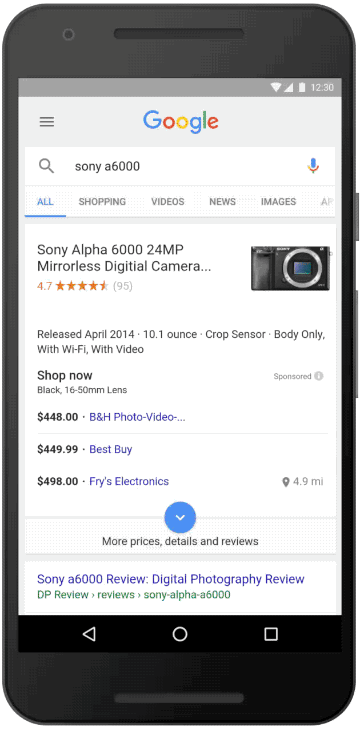https://youtu.be/Di8SLFxPz0g
Modularized apps offer Android-specific features without installation. websites are often more convenient than their desktop counterparts when you’re on your phone, but they’re also usually missing some important functionality that’s available (or just easier to find) on the desktop. Apps can help solve the problem, but only if you have the foresight and/or bandwidth to install them when you need them.
Android’s just-announced Instant Apps feature, which should be available to all phones running Android 4.2 or later and via an update to the Google Play Services software coming “later this year,” will attempt to bridge that gap. Instant Apps are designed to provide the richer, Android-native experience of an app combined with the convenience and the lower data and storage usage of a mobile website.
When users tap an Instant App URL, they are taken directly to an app that runs without installing. Developers who want to offer Instant Apps will have to modularize their apps so that users don’t have to install the entire app just to use certain features of it—this is where most of the data savings come from. Google’s examples included museum or resort apps with maps and schedules, along with apps that help you pay for parking. These are the kinds of rarely-used apps that are useful in the moment, though you wouldn’t necessarily want to install them on your phone beforehand or keep them around afterward. Developers can, however, can provide “call to action” links that encourage users to download and install apps that they find particularly useful.
Instant Apps are a logical evolution of App Links, a Marshmallow-era feature that lets installed apps designate themselves as the default options for opening certain kinds of links. For instance, clicking a link to Pinterest might open up the Pinterest app rather than Pinterest’s mobile site—Apple’s “Universal Links” in iOS 9 provide similar functionality. Google requires apps that use App Links toprove that they’re associated with the sites they say they’re associated with; the exact same sort of verification will be used for Instant Apps.
The effort required for developers to modularize their apps will vary, and there are some kinds of apps that won’t work well with this model—games and anything that requires payment up-front, for example. But devs who take the trouble can provide Android-specific functionality that wouldn’t normally be possible on a standard mobile site. B&H Photo Video, a prominent Manhattan electronics retailer, has worked with Google to demo Instant Apps, and it will be able to offer both Android Pay and fingerprint sign-in support whether users have actually downloaded their app or not. Other early partners include Buzzfeed, Medium, Hotel Tonight, Zumper, and Disney.
The exact availability of Instant Apps for both end users and the wider developer community isn’t quite clear at this point, but Google says it will “gradually [expand] access” to the feature and bring it to users “later this year.”
Source:https://arstechnica.com/

Working as a cyber security solutions architect, Alisa focuses on application and network security. Before joining us she held a cyber security researcher positions within a variety of cyber security start-ups. She also experience in different industry domains like finance, healthcare and consumer products.












